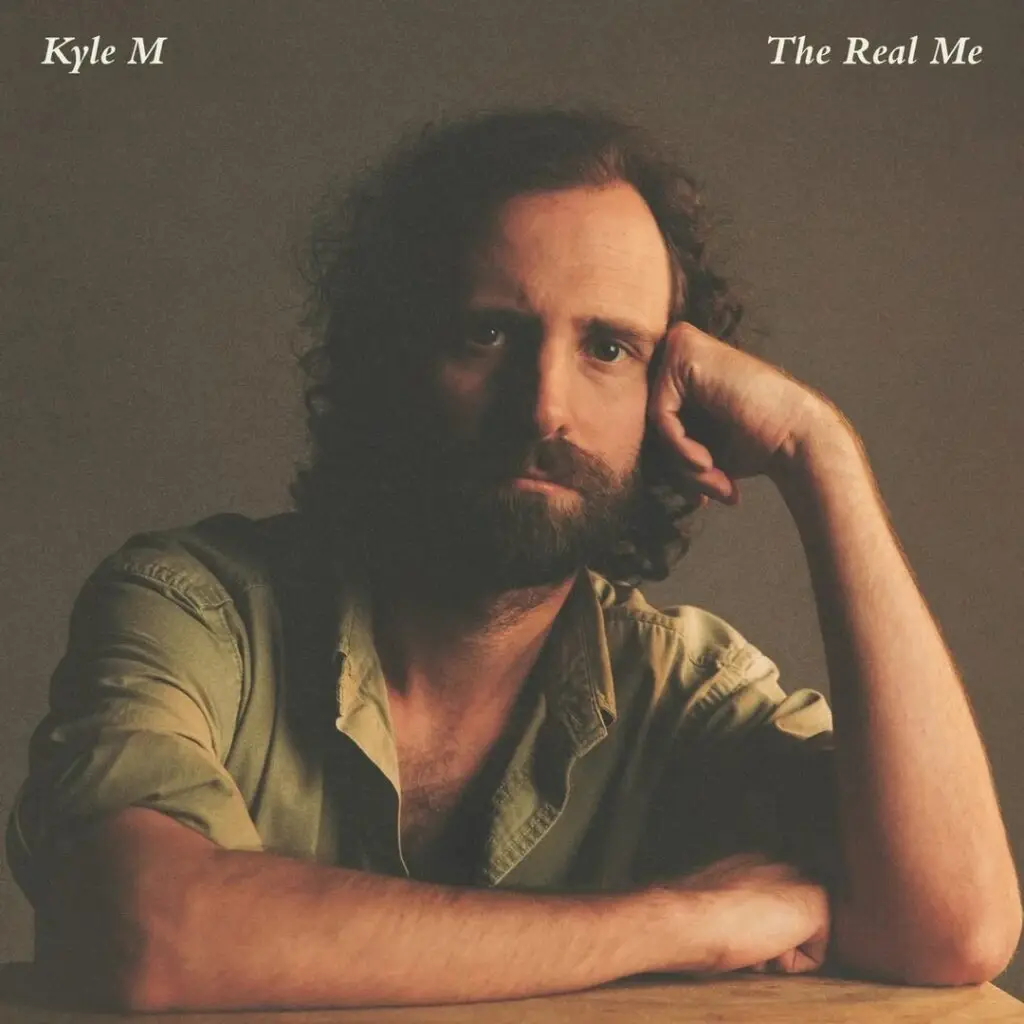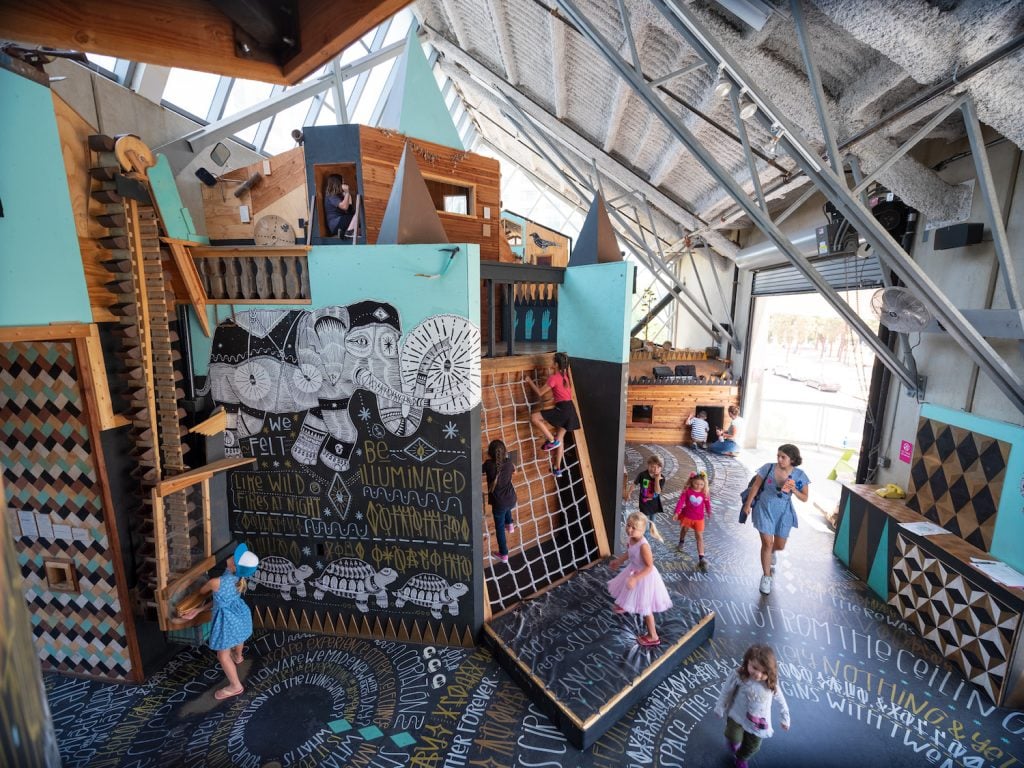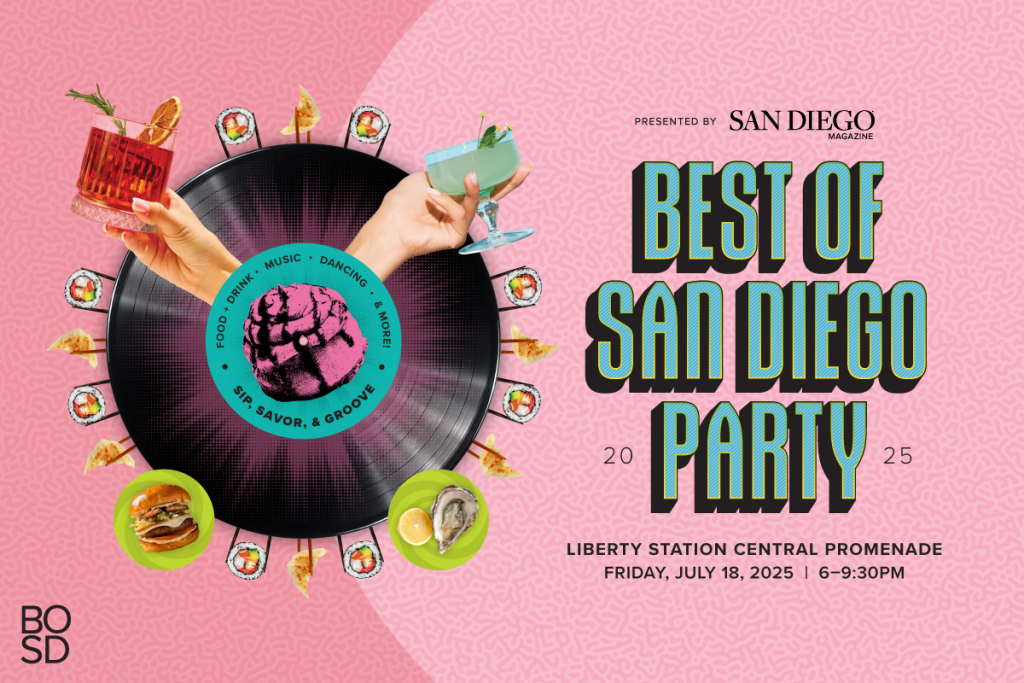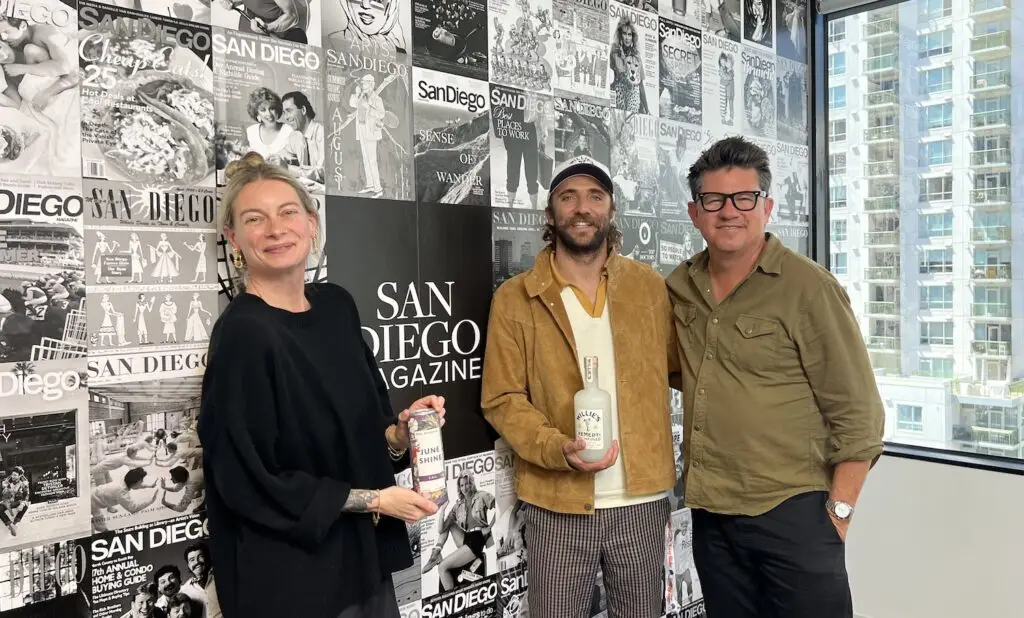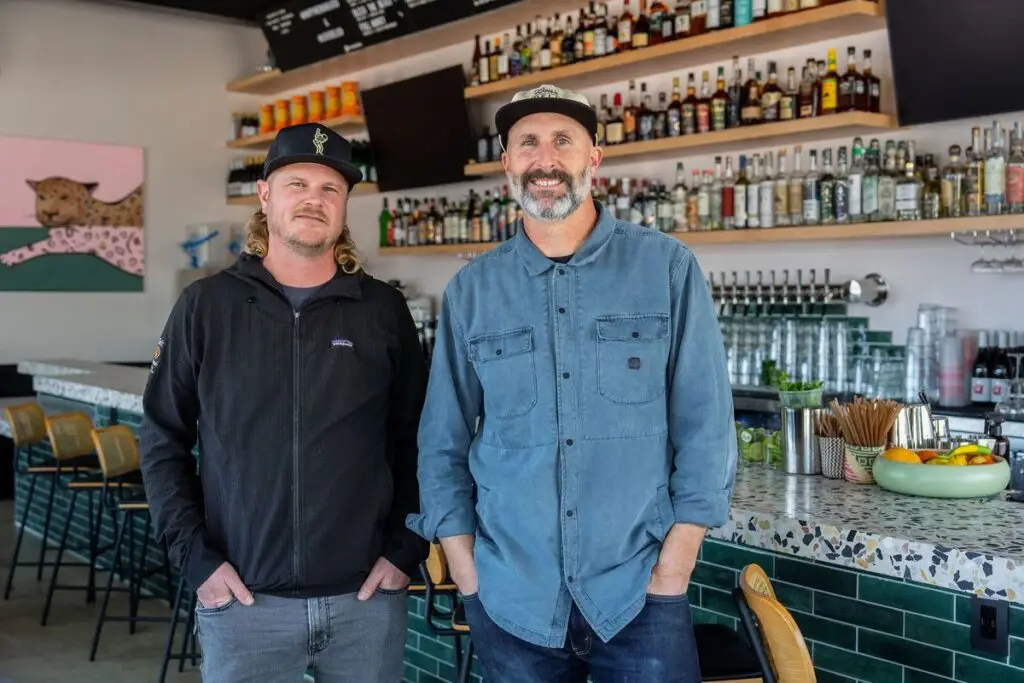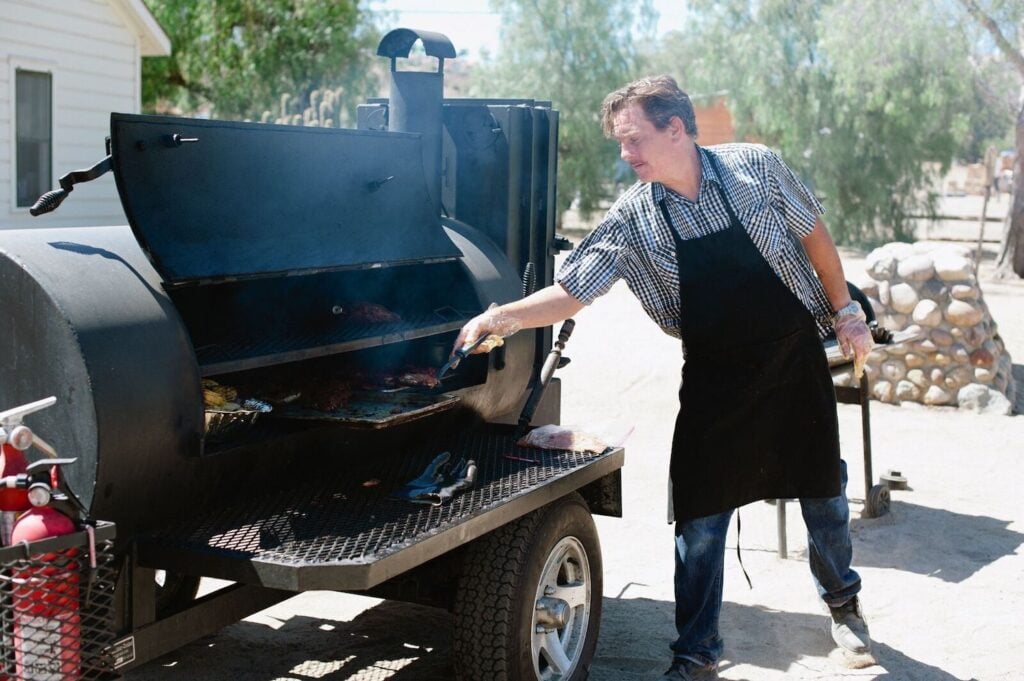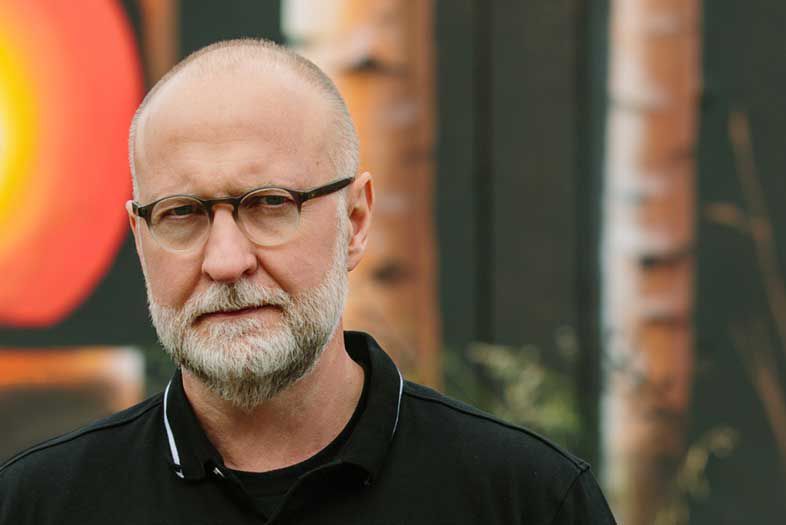Bob Mould was punk before you were. The singer-songwriter cofounded Hüsker Dü back in 1979 with Grant Hart and Greg Norton in St. Paul, Minnesota, helping to establish hardcore punk in the United States during a time when independent music tours were only just starting to gain traction. For eight years, that band combined power, volume, and melody in a sound that paved the way not just for every subsequent project of Mould’s, but for countless other underground rock bands. Since then, Mould has performed in the alternative rock trio Sugar, DJed electronic music at a night called “Blowoff,” and released a dozen solo albums. And though he’s had moments to catch his breath in between projects, he’s essentially never stopped moving in his 40-year career.
Mould’s latest album, Sunshine Rock, comes after a period of transition. His previous two—Beauty & Ruin and Patch the Sky—were much darker, written after the deaths of his parents. When the touring cycle for the latter ended, he temporarily relocated to Berlin to start fresh and throw himself into new surroundings. The songs he wrote while overseas ended up being his most hopeful in years, comprising his latest, Sunshine Rock, released earlier this month via Merge Records, featuring Jon Wurster on drums and Jason Narducy on bass. In many ways, it’s one of his brightest and warmest records, yet it still carries the same urgency and roar that’s been part of his oeuvre since his Hüsker Dü days.
I spoke to Mould about his new album, the influence Berlin has had on his process, and the changes he’s observed throughout his 40-year career.
Jeff Terich: Did moving to Berlin play an influence on the writing of Sunshine Rock?
Bob Mould: Absolutely. Environment is the key thing with records. There are outside forces, personal emotional things that happen. But to wake up each day and constantly be learning something new, whether it’s about different culture or language, or just all-new experiences—those kinds of things, for me, tend to create a little extra energy in my life. They tend to get a little more sparkly, and I’m observing in a different way. I think for people who live in a city or town for most of their life, the scenery stays the same more or less. But I like to observe people—that’s part of my job, I think, to watch the world and write things about it. To have a whole new culture or cast of characters.
JT: Was there a specific objective in mind when working on the album?
BM: I had a direction I did not want to pursue, and that’s writing another darker record. The two albums before this one were informed by the loss of each of my parents, and this time, I thought, I gotta just try to find some brightness. And when the experiences that led to the writing of the song “Sunshine Rock,” once that made itself known, it was pretty easy to go in that direction. And I realized it’s pretty easy to fill things in after that. It’s sort of like putting a puzzle together at that point.
JT: You have a pretty large body of work—does it take some homework to be able to play songs from 10, 20, 30 years ago?
BM: I just got done doing that sometime between 10:30 a.m. and 12 noon [laughs]. Sometimes the words slip out of my memory bank and I have to go back and just touch them a couple times, and it all comes back.
JT: Does your relationship with your songs change over time?
BM: Yeah, I mean, renditions evolve. As far as emotional content, I always have a good sense of where I was when I wrote it and what precipitated the writing of it. In that sense they stay true to how they were conceived in an emotional sense. But there’s a lot of ’em to keep track of [laughs]. One of the real enjoyable things, and people get a sense of this when they see the band live, is how the material from the last four records fits in seamlessly with the rest of the catalog. There’s just signature moments in songs where people can tell it’s my songwriting. But in a live setting, especially as a power trio where everything’s pretty cranked up and pretty loud, I love how all the time the songs just start to become this one big sound that could be from ’84 or from the new record, and at the live show it’s just this cumulative effect and basic singular sound we work with.
JT: Music and the industry have changed a lot since you first started making records with Hüsker Dü. What have been the biggest changes you’ve observed?
BM: The whole idea of hardcore punk as a reaction to the bloated ’70s arena rock style, that was a big change. There were a lot of us who started bands because we wanted to be heard, we wanted to change the world and we knew there wasn’t going to be a private jet to take us around and do it in. So we had to make up a new world to share information and build a completely separate world from mainstream rock.
The mid ’90s is where things started to get shaky with the music industry. And in the late ’90s, the business began its slow, ugly implosion, mostly at its own hands. I remember when everybody felt like they had to put 74 minutes of music on a CD and only 90 seconds of it was good, and people were doing a lot of telemarketing, radio stations doing call-outs and testing choruses on people. I think the consumer got wise to the fact that there was only one good song on most of these albums they were playing on the radio, and if they could download a lower resolution version for free off the internet, then there you go. That’s 18 bucks the business never sees.
Now music is essentially free, or almost to the point where they’ll be paying people to listen to it, at the rate it’s going. So, we’re in a new world.
JT: You’ve kept pretty busy for the past 35 years, with occasional breaks. But after some time away from the road, do you feel a pull to get back onstage?
BM: It’s part of the album cycle. It’s good to present the music to people. The fact that Jon and Jason have many projects other than working with me, it’s just a thing where every couple years we’ll get together and have our months of playing music together for people. Which to me makes it pretty great, having been in bands most of my adult life. When you’re with people 365, it’s not always the thing you look forward to. The fact that the three of us get together only X number of times each year makes it a real joy and pleasure, and keeps it special for us.
Bob Mould
February 28
Other Recommended Shows:
Justin Timberlake (February 21 at Pechanga Arena): I’ll be honest with you—Man of the Woods, Justin Timberlake’s so-called country album, didn’t do it for me. I’m not necessarily against the man trying out new things, but to my ears he has yet to top Justified or FutureSex/LoveSound. That being said, I have no doubt that this will be a super-fun show packed with hits. Embrace the spectacle!
Gregory Porter (February 24 at Balboa Theatre): Sacramento-born jazz vocalist Gregory Porter won a Grammy for Best Vocal Jazz Album in 2014 for Liquid Spirit, and for good reason. He’s a dynamic performer who combines elements of jazz, blues, and gospel into one lively and soulful blend of sounds. Don’t be surprised if you feel compelled to move.
Sharon Van Etten (February 28 at Observatory North Park): One of the first great records of 2019 was Sharon Van Etten’s Remind Me Tomorrow, an album that found the singer-songwriter embracing brighter, more danceable synth-based pop sounds in addition to a more hopeful outlook. It’s grown-up pop that isn’t afraid to get loose, and I’ve had it on regular rotation since it was released.
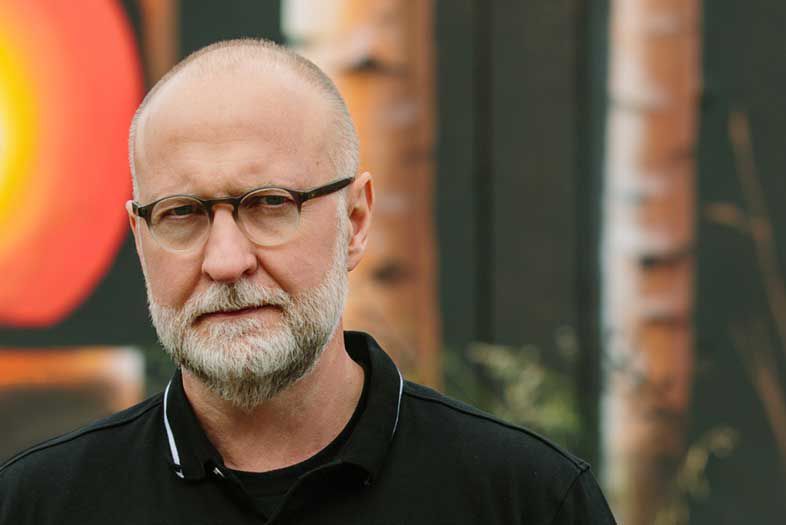
Bob Mould on Seeking A Brighter Outlook with ‘Sunshine Rock’
Photo by Alicia J. Rose




